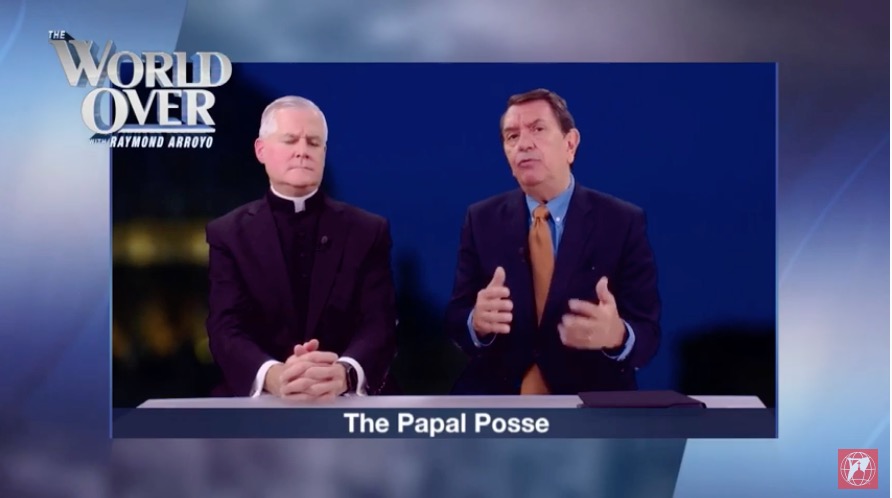The Uses of Presumption?

It would be presumptuous, of course, of anyone to offer advice to the College of Cardinals gathered for private discussions with Pope Francis during the two days of the “extraordinary consistory” currently underway. Doubly presumptuous, because who would listen – or read – some random, unofficial figure anyway?
So far, details from the first day of the consistory have been quite sparse and general. Which is surprising given the challenges that the Church faces both internally and from an increasingly hostile world.
And doubly surprising, too, because a fair number of the Cardinals are serious and accomplished men who have thought – and thought deeply – about the current situation of the Church. Some are even more than ready to act, boldly.
Still, if someone presumptuous, against all proper respect and good judgment, wanted to offer the College as a group some humble words of advice, the first move might be to counsel them to take and read C. S. Lewis’s great little book The Screwtape Letters. Read more.
The Feast of Forgiveness
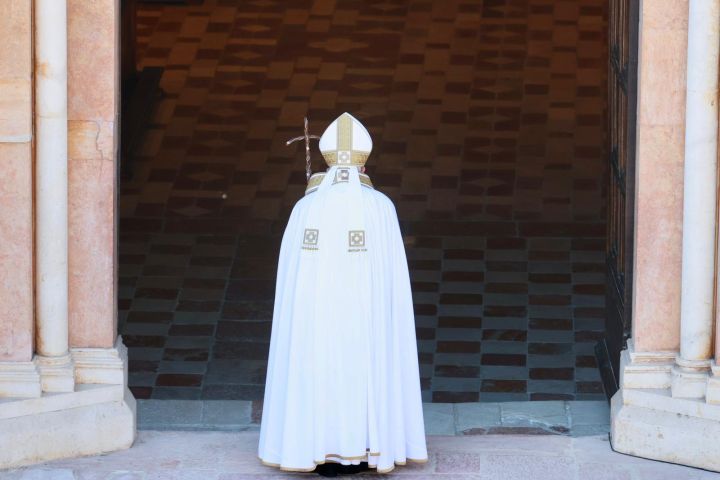
Pope Francis, love him or not, has a gift – personal charisma. His papacy might have been an indisputably great one if he had stuck mostly with his extraordinary ability to reach out to people – and had avoided theological and moral questions that are manifestly not his strong suit. Case in point: his pilgrimage to L’Aquila in central Italy yesterday for the Feast of Forgiveness was truly moving. He didn’t announce his resignation, as some anticipated. But he did something that might almost serve as a touchstone for his best days as pope. He brilliantly dramatized the need for mercy and humility, at all times and places, but especially now in our postmodern and deeply troubled world.
The Celestine Feast of Forgiveness (Perdonanza) in L’Aquila has a long and interesting history. It was instituted by St. Pope Celestine V in 1294, making this year the 728th anniversary. Yesterday was the first time in all those many years that a pope came and opened the Holy Door (Porta Santa) of the L’Aquila Basilica. Pilgrims who pass through that door during the feast days, as the pope did himself, and completing the usual requirements, can receive a plenary indulgence.
Read more.
Some Reflections on the New Red Hats
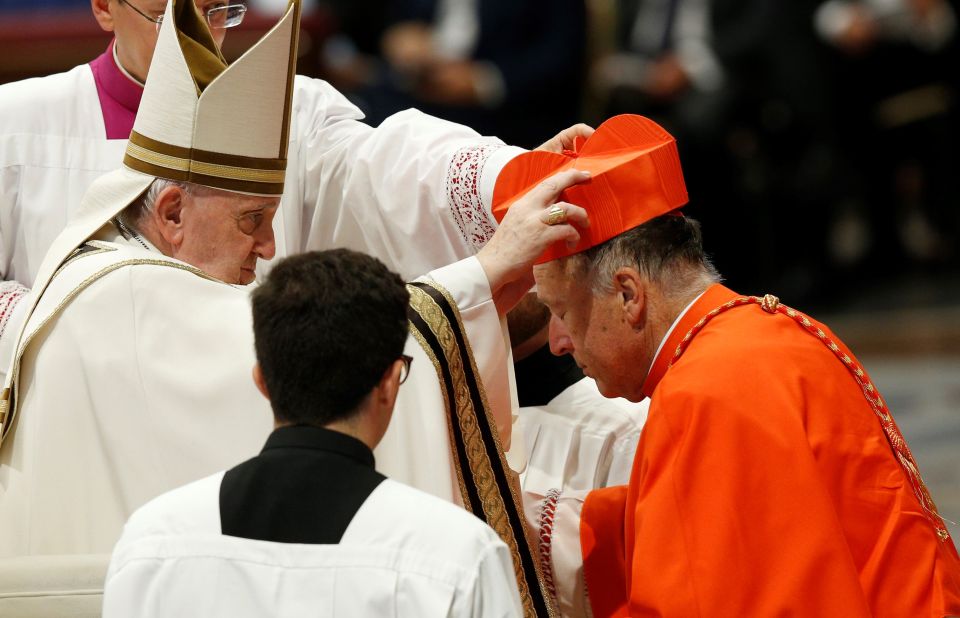
It doesn’t take a deep historical sense – or an overly romantic imagination – to be moved by the great formal events that the Vatican conducts several times a year. They take you to some other place and time. There’s nothing quite like them in the modern world – (though the British monarchy under the great Elizabeth II, occasionally strikes similar, if lesser notes.) My preference is for the large events held outdoors in St. Peter’s Square under the milky blue Roman skies, which make you think of great public liturgies in ancient Jerusalem and Rome.
Yesterday’s ordinary consistories, which confirmed twenty new cardinals and canonized two new saints, took place inside St. Peter’s, perhaps because of the August heat. But it was a glorious affair all the same: The rhythms of Latin, the universal language of the global Church, were lovely. (Ironically, now-Cardinal Arthur Roche, prefect of the Dicastery for Divine Worship and merciless TLM hatchet-man, gave a rather substantial opening discourse in his English-inflected Latin.) The music and colorful vestments and rich décor made it clear that God was being honored with all the beauty and skill of which our poor fallen species is capable. Read more.
Late August Stirrings in Rome
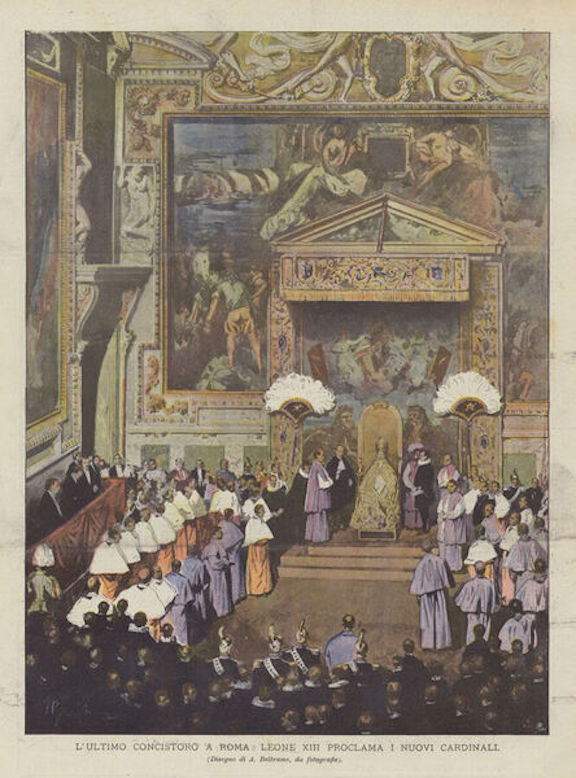
This morning, Deo volente and despite United Airlines, your correspondent is more or less standing, jetlagged but alert, in Rome. It’s an odd time to be here. Ferragosto (named after the August Feast of the Assumption) is Italian vacation time. Virtually everyone is away and many shops, pharmacies, and even restaurants are closed or on reduced schedules. But this year, Pope Francis – who doesn’t take vacations – has decided that over the next five days he will hold an “ordinary consistory” to make 20 new Cardinals, visit L’Aquila (the burial place of Celestine V, the last pope prior to Benedict XVI to abdicate), and preside over a couple of days of discussions by the world’s Cardinals – an “extraordinary consistory” – about the future of the Church and the world. Read more.
Synodal Perils and Possibilities
Treading a synodal path, let’s be sure to maintain the body of truth we have received from those who came before us. If we are now to tread the synodal path, let us do so alert to our basic responsibilities as Church: maintaining the body of truth we have received from those who came before us, sharing it generously with our contemporaries, and, when the time comes, passing it on intact to those who will come after. Politicizing and bureaucratizing won’t help.
Culture Wars and International Affairs
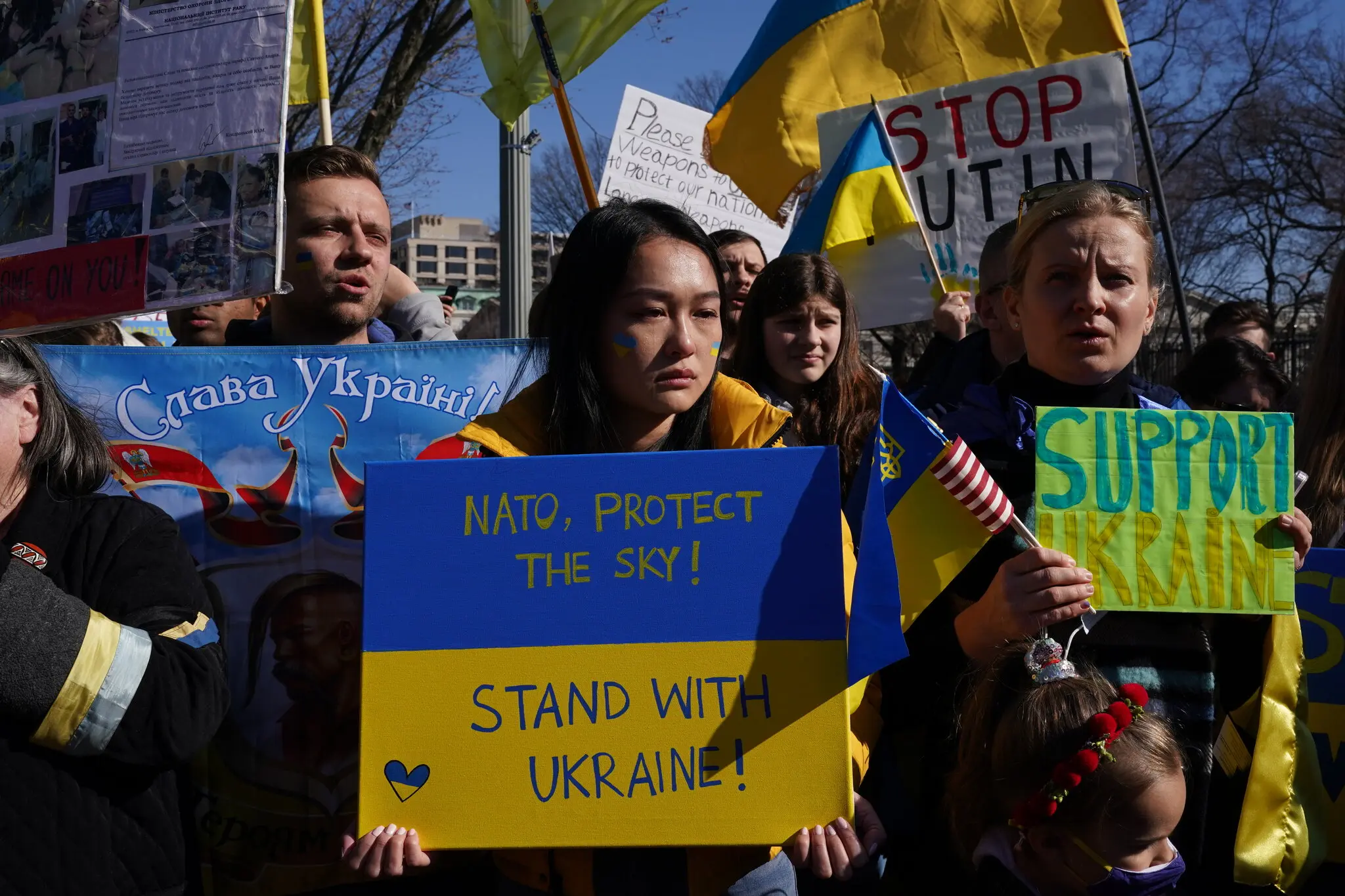
Russia’s absurd portrayal of itself as some sort of Christian champion in Ukraine – even as it slaughters thousands and destroys whole cities, has gotten me thinking about something I’ve been ambivalent about for many years: the effect of American popular culture on the rest of the world.
I love America. And like all sane people who do, I, therefore, come close to hating much about our current popular culture – starting with the fact that we even have it here at home to export. But there are some crucial distinctions to draw about that now-global U.S. presence. And we should not allow to go unanswered those who want to use the decadent elements of American and Western culture and even Western Christianity – which exist beyond all doubt – as an excuse for nefarious purposes. Read more.
What Is to be Done?
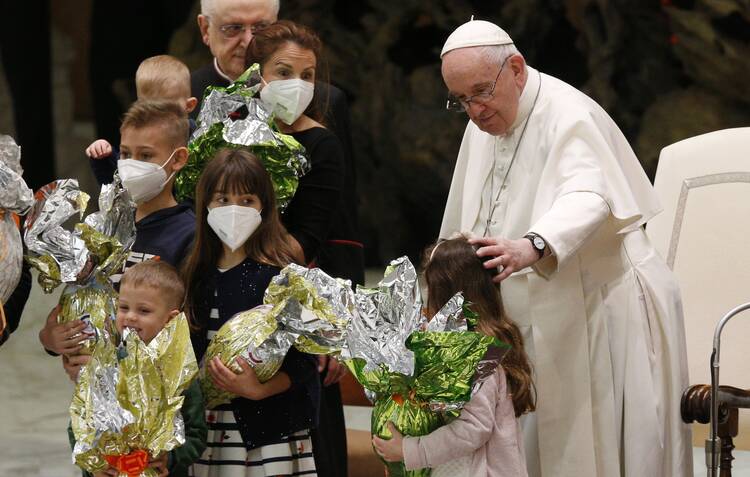
The question above has been proposed at various times in Russian history. Lenin raised it and believed the obvious answer was Marxist revolution; Tolstoy asked it and found in his efforts to help Moscow’s poor that there was no easy answer, perhaps no answer at all. It’s strange to be in and around the Vatican these days – as a major war is raging – something that hasn’t happened in recent decades and, therefore, puts the same question to inexperienced leaders, Catholic and not. Like poor Tolstoy, they don’t have many answers. Read more.
Religion – and the Pope – Still Matter
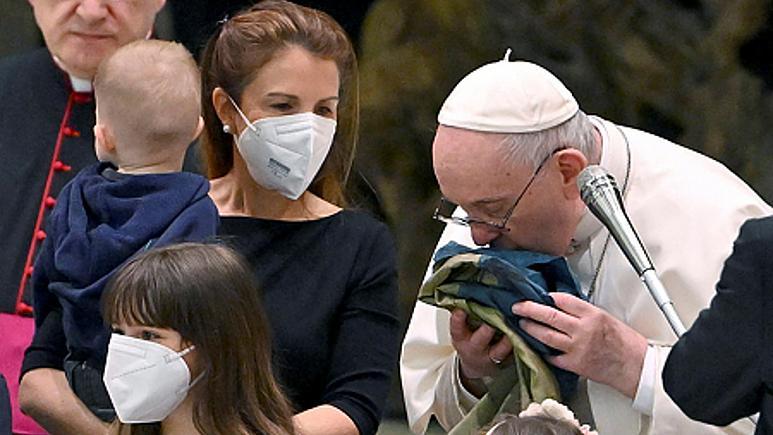
Visiting with various people in Rome this week, I’ve been struck by the fact that they all understand that religion still matters. Who knew? Almost everyone in the world outside the Western media bubble, of course, which typically regards the religious impulse of the human race as something of a colorful holdover from the past when it crops up, preferably in distant cultures. Closer to home, it’s taken to be a dangerous delusion, the realm of “bitter clingers” and a whole “basket of deplorables,” when traditional Christians and others act as if faith has consequences not only for themselves, but the public realm. Then a major conflict such we are witnessing in Ukraine arises and, at least briefly, it’s clear that, like it or not, the world of faith makes a world of difference. Read more.
The Sciences and Homophiliac Synodality
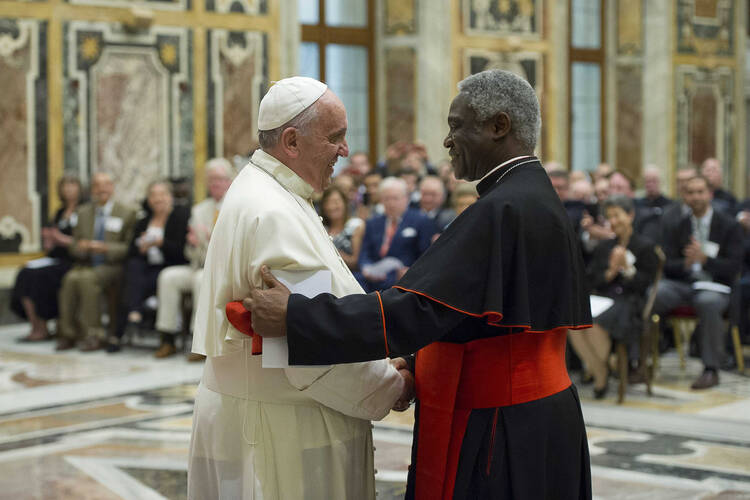
Cardinal Peter Turkson, a Ghanaian who has long been involved in Vatican international activities, was named this week as Chancellor of both the Pontifical Council of Sciences and the Pontifical Council of Social Sciences. Ordinarily, this kind of musical chairs, involving longtime Vatican officials and offices, is only of interest to people who are either clerical careerists themselves or who believe they see salvation or damnation in what are often just murky personnel maneuvers. In this instance, however, much may indeed be at stake for the Church – and maybe even the world. Read more.
Seriously, Synodal?

One of the reasons the current push for synodality worries many people is that it doesn’t seem to have any clear purpose or limits. The official documents and pronouncements seem to hope that the synodal process itself, in its stated ambition to consult widely with people from all over the world (with what success or authenticity remains to be seen), will somehow, against the odds, come up with the program of what the Church now needs globally. Read more.
Who Needs Synodality?
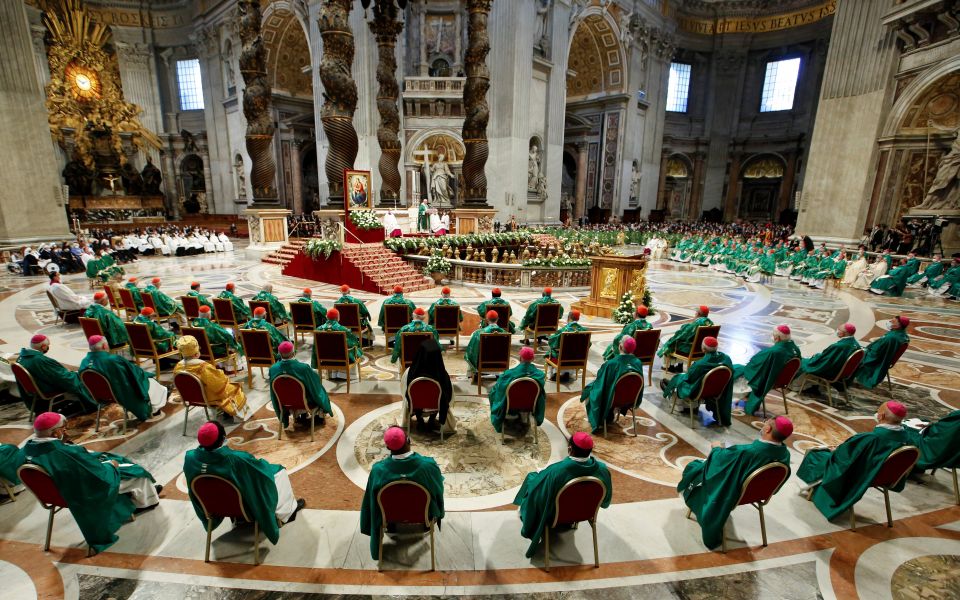
Pope Francis has put a serious matter before the whole Catholic Church – and the whole world. He has claimed that Catholicism is in such deep need of reform that the Church should move “not occasionally but structurally towards a synodal Church, an open square where all can feel at home and participate.” Read more.
Speaking of the Synod
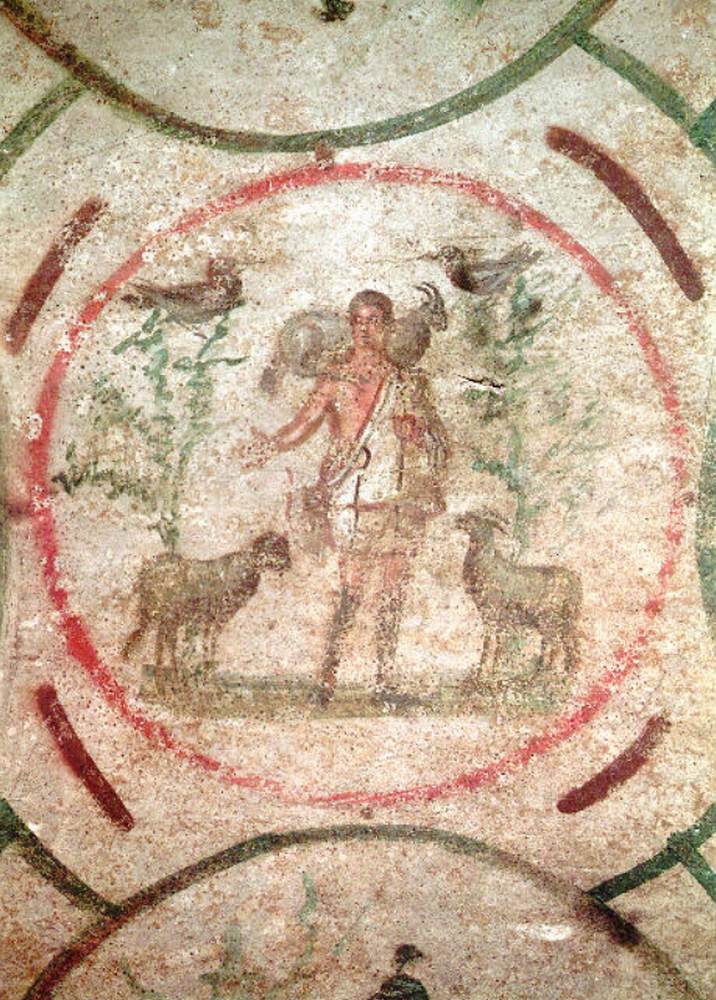
If the Church would keep the sheep in the fold, and call home those who have strayed, it would do well to speak in a recognizable voice. The new Synod documents spend a great deal of time explaining what synodality and the Synod are not. It is reassuring to read, for example, that “synodality is not so much an event or a slogan as a style and a way of being,” and that “[s]ynodality is not a corporate strategic exercise.” But why then does the Church insist on speaking in precisely the language of corporate slogans and strategic rebranding? Read more.
Synodality Is What You Make of It
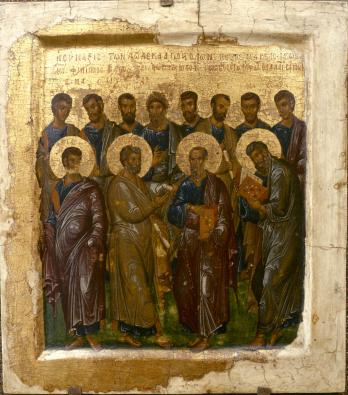
The potential abuses of synodality acknowledged, it would be a mistake to dismiss out of hand the promise of synods. The Synod process beginning this October will begin with a diocesan phase, to be followed one year later by a continental phase, and, finally, a universal phase in 2023. How well a Church of more than a billion souls scattered across the globe can discern or “walk together” through such a necessarily impersonal program is far from obvious. Read more.
Concerning “Synodality”
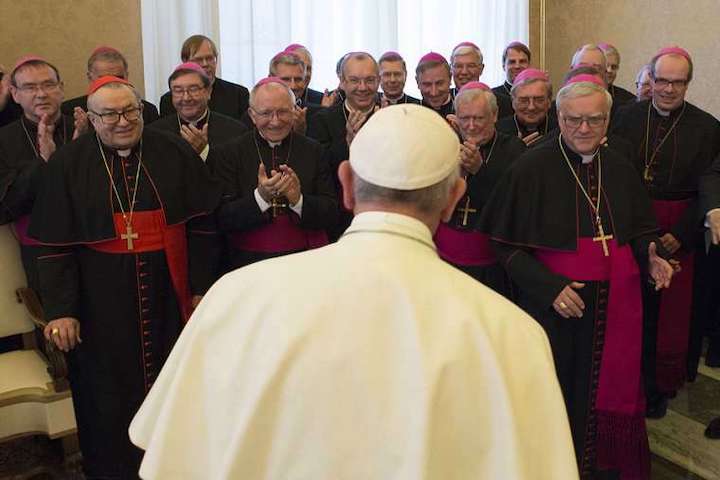
Synodality is good or bad depending on those involved, their understanding of roles, and their respect for Catholic tradition. But is synodality what the doctor ordered or a poison pill? In fact, it could be either, depending on those who are involved in a synodal process, how they understand their role, and how much or little respect they show for the Catholic tradition. Read more.
Lost in a Dark Wood: Final Thoughts on the Amazon Synod
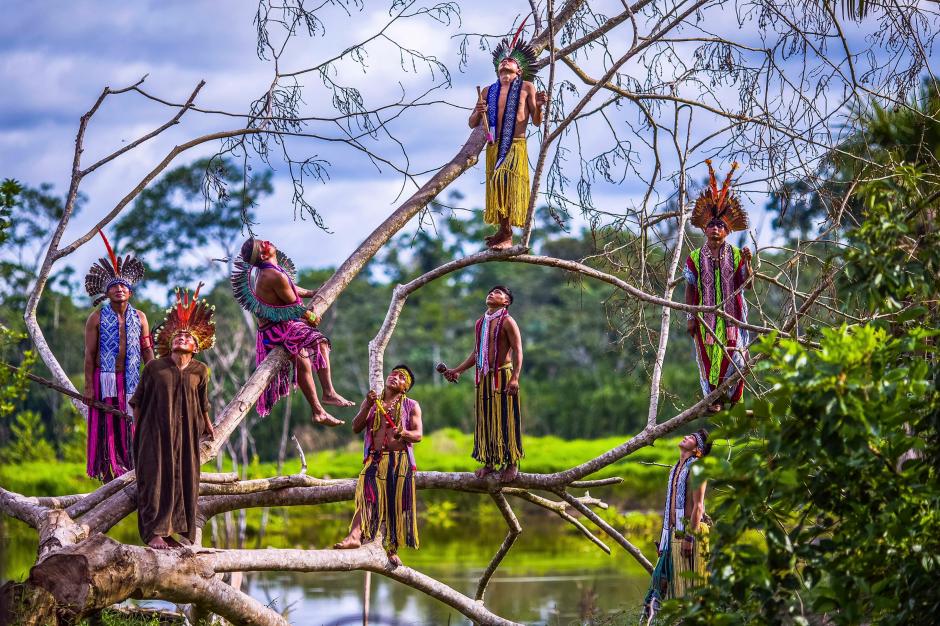
Even before the bishops assembled in Rome in early October, it was unclear what the Amazon Synod was, really, about. If it was about evangelization in that region, you would want to focus sharply, indeed narrowly, on the practical means. Because if the Church hasn’t made much headway in the region after 500 years, including the past 50 years (since Vatican II) during which several of the Amazon bishops claim to have been carrying out a more sensitive ministry close to indigenous peoples, you wouldn’t want to head off onto yet another period of ineffective wishful thinking. Read more.
Two on the Synod
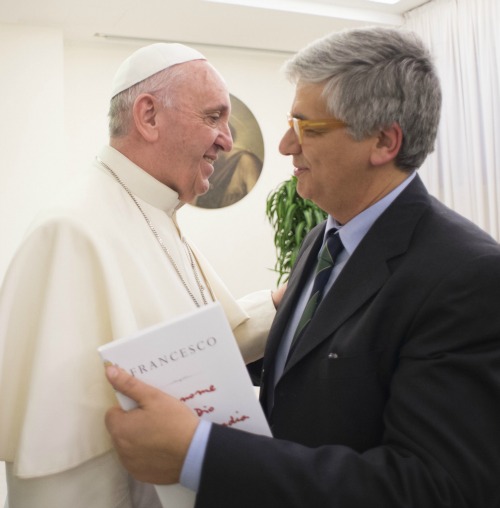
Robert Royal and Eduardo Echeverria present two views of the public-relations mess caused by the use of certain Amazonian symbols and the Vatican inability or unwillingness to explain what they are and what they are supposed to mean in the context of the Amazon Synod. Read more.
Journalists without Ethics?
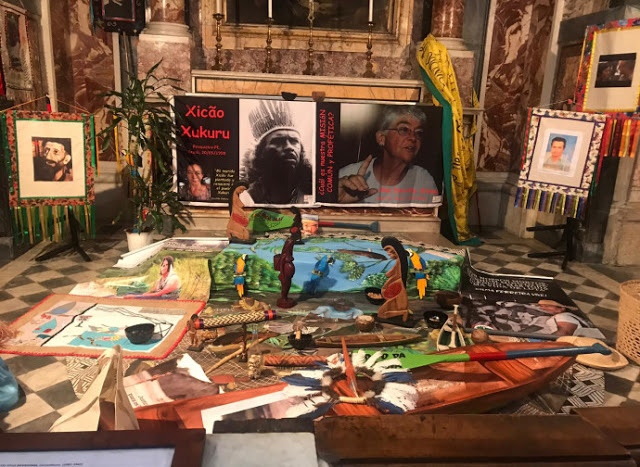
With the staggering amount of fake news that makes its way around the Internet and social media these days, it’s difficult not to be sympathetic to critiques of journalists. Yet in the grand tradition of shooting the messenger, there have been some truly stunning efforts recently, by various figures in and around the Vatican, to make it appear that criticisms of Pope Francis and some of his dodgier moves during the current Amazon Synod are simply the scurrilous tactics of so-called “journalists without ethics.” Read more.
Pachamama Sleeps with the Fishes

So. . . . The greatest headline from yesterday: “Pachamama sleeps with the fishes.” A reference, for those who do not already know the history of the Mafia, or even of “The Godfather” films, to a common practice. In Sicily, when one branch of the mob rubs someone out, they put his body in the ocean, and send a fish wrapped in newspaper to the relevant mob members and family members. He, they announce, is dead, i.e., “sleeps” with the fishes. Read more.
Wheels within Wheels?
The Synod on the Amazon resumes today for its third and final week. Things slowed down over the weekend, so today’s synod report will be brief; we wait to see what will develop as the last days unfold.
The ultimate outcome is not much in doubt, owing to the fact that the main lines were baked into the Working Document. In addition, the people selected to participate are almost exclusively of a certain orientation that’s not only Latin American, but even from the “peripheries” of Latin America. And is making heavy use of a group that, it seems, is supposed to trump all other considerations: “indigenous peoples.” Read more.
Incoherence in the Amazon?
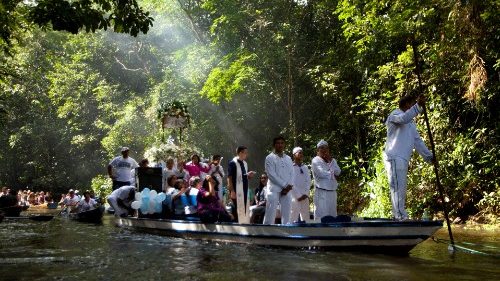
In any large organization, but especially a global and universal one like the Catholic Church, the chief executive has to take special care about two things. There will, of course, be different views, perspectives, emphases, ideas on various sides, and the boss must, first, make sure that they are all contributing to the central purposes of the body. And second, he must be extremely cautious that he himself does not undermine those purposes.
And that’s why the Synod on the Amazon, a region of considerable importance but not quite so unique as is being claimed these weeks, will go down in history, if a true history is ever written. Read more.
At the Turning Point

The Amazon Synod passed its mid-point yesterday. And as things now begin to move towards a close, several currents have become more apparent. The pope’s appointment of four new figures to the drafting committee of the final document indicates that the overall line, as might have been predicted, is now set in stone. There will be no drama about the outcome, as in past synods. But there are several particulars worthy of attention. Read more.
The Amazonian “Paradigm”
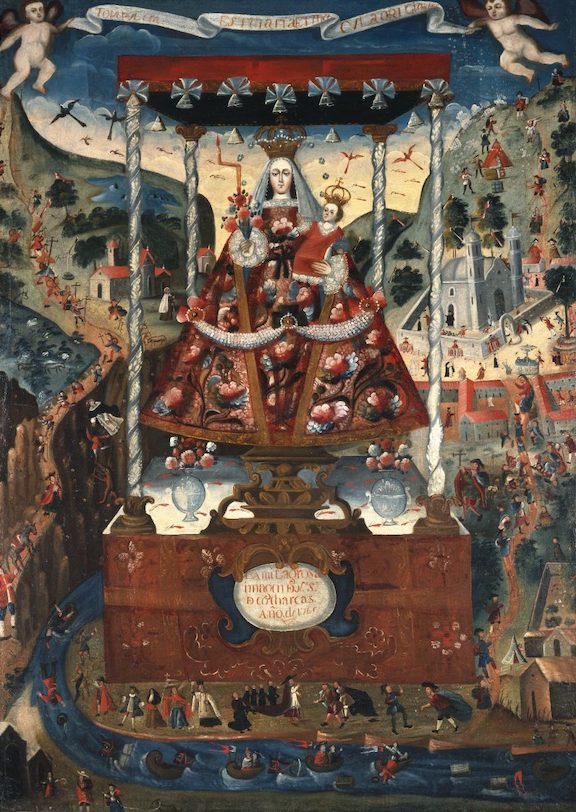
The second week of the Amazon Synod began yesterday and the usual voices said the usual things in the usual way. There was more talk of inculturation and valuing indigenous peoples and eco-conversion, but curiously little to reassure us about how it all is supposed to work, since so many participants claim to have already been engaged in just such activities for quite some time. Read more.
Who Needs an Ecological Conversion? – and a Canonization Note
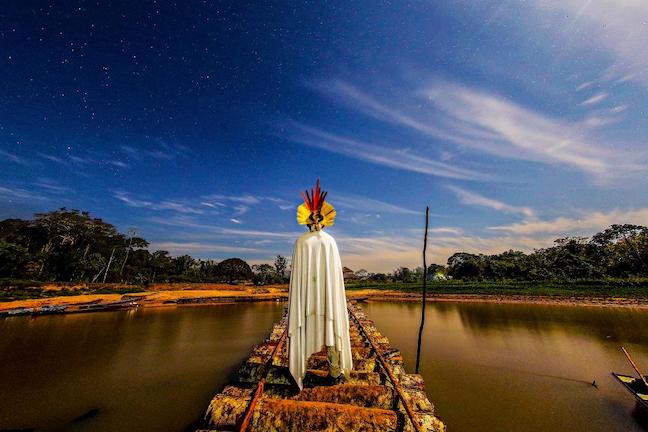
We begin today – the delightfully incoherent “Columbus/Indigenous Peoples’ Day” in the United States – with several questions. Where has environmental harm to rivers, air, soil been most reversed? And where is it now most difficult for factories to pollute streams, for farms to allow fertilizer and pesticide runoff to poison local flora and fauna, and for both companies and individuals to put soot and other unhealthy particulates into the air? And where, too, are the strongest advocates for taking care of both the 7 billion people on the planet and the global ecosystem on which we all depend? Read more.
The Human as Guest?

Synods almost always move within predictable boundaries and the subjects they take on, the very language they use, is largely predictable. But a new term has popped up at the Amazon Synod in the last few days that may be significant. Various sources say that the synod participants have been talking about changing our mentality from thinking of ourselves as the lords and masters of nature to our true position – as “guests.” As with much else that happens in discussions of ecology, this has its positive and negative sides. The positive side, a very positive side, is that it repudiates a centuries-old view that corrupted the Scientific Revolution at the very start. Rene Descartes spoke of making ourselves “masters and possessors of nature.” Francis Bacon went even further advising we “put nature on the rack for the relief of man’s estate.” Read more.
The Problem of the “Two Synods”
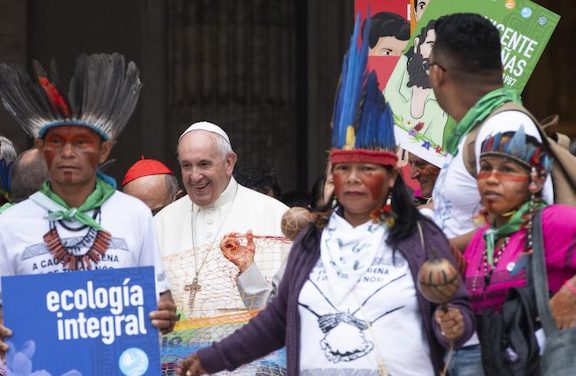
In the early days of a synod, it’s very difficult to assess what’s going on – especially because observers and journalists are not allowed into the hall. And that’s under the best of circumstances. In current circumstances, the communications office says that it has been taking special steps to ensure that as much clear information as possible is being released. A phrase has come up several times – even alluded to by the pope: they hope to keep what is really going on (“the synod of the room”) from being distorted in various outlets (“the synod of the journalists”).
This is hardly a new concern. Pope Benedict XVI spoke often of how Vatican II – which he and JPII and many others who actually participated in the Council thought of as balanced effort at renewal – quickly turned into the “Council of the journalists,” aided and abetted by heterodox theologians. In a media-interpreted world like ours, appearances can easily be made to replace reality. Read more.
The “Process” Begins
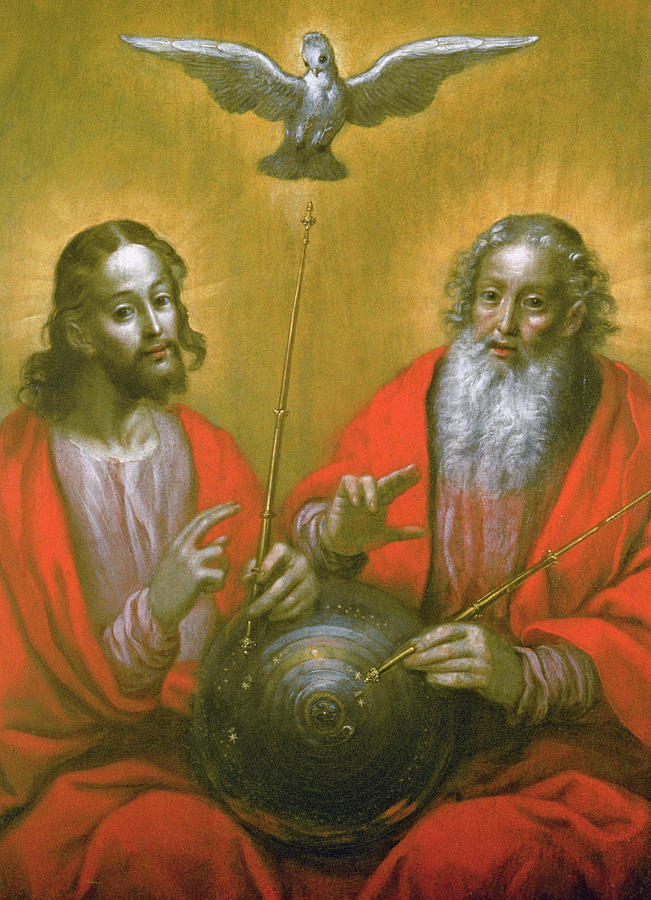
Most people reading this will be members of modern pluralistic societies, which means places where we are surrounded daily by others who have deeply different beliefs, some quite mad, some more or less sane. And there is also now a growing contingent of people who believe in nothing. And it shows.
When we turn to the Church, however, we expect something different both in terms of belief and action. We still contribute to the common good, to use the classical term, even though, in our societies, there is no common idea of what is good. We do so because we believe certain things are good for all human beings. Besides, if you have to live in the same cage as the other animals, mere prudence means you at least try to get along. Read more.
The Return of the King
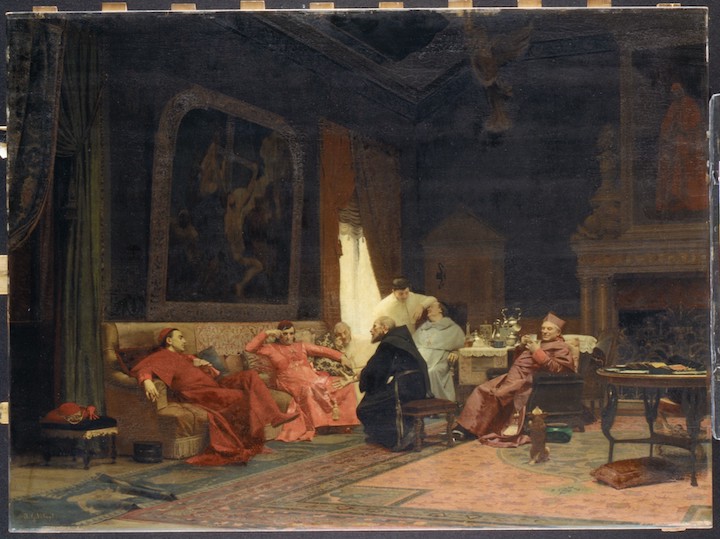
Pope Francis is fond of saying that “synod” means “walking together.” In the right circumstances, it can mean that (though usually it just means a “meeting”). In the wrong circumstances, it can take on the less happy meanings of the original Greek “synodos” – like the “meeting” that happens when two parties face each other in a courtroom – or two armies clash.
That troubled side of “synod” has been evident in past weeks. Before the Amazon Synod even started – the bishops, vested in green, joined the pope for Mass at St. Peter’s yesterday and begin their work today – there’s been a swirl of passionate claims and counterclaims, the likes of which have probably never been seen in Rome at this kind of an event. . . . Read more.
After the Summit
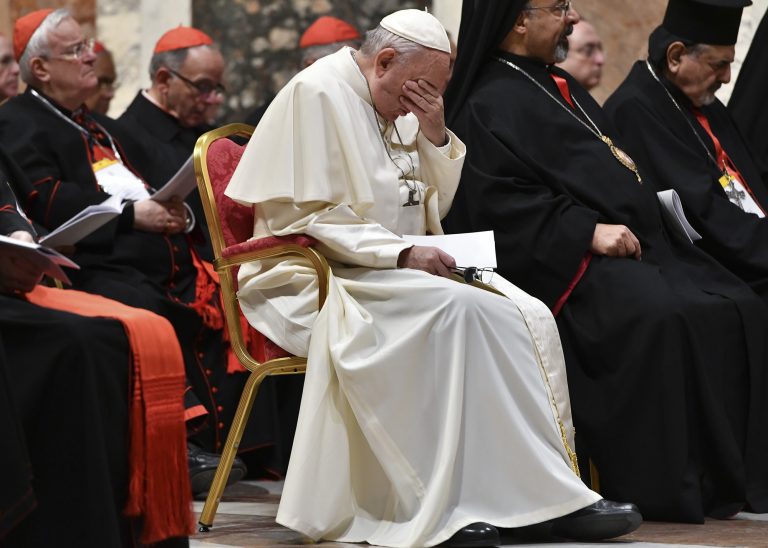
Reform of the kind we need – however much anger and frustration we are going to feel in the meantime – is going to be a long-term project in which we are all going to have to assume new responsibilities. All the more reason not to be swept away by emotions, but to maintain targeted, reasoned pressure on Rome and everywhere else in the Church. Read more.
The End of a Beginning
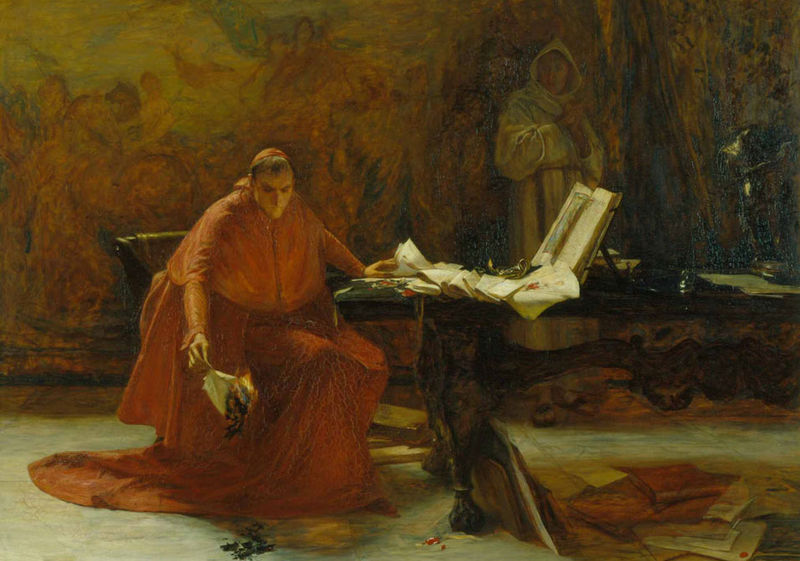
Robert Royal: Presentations at the final day of the Vatican confab on abuse featured key speakers from Nigeria, Germany, and Malta. Good may come yet. Read more.
Continuing Controversies and Unanswered Questions
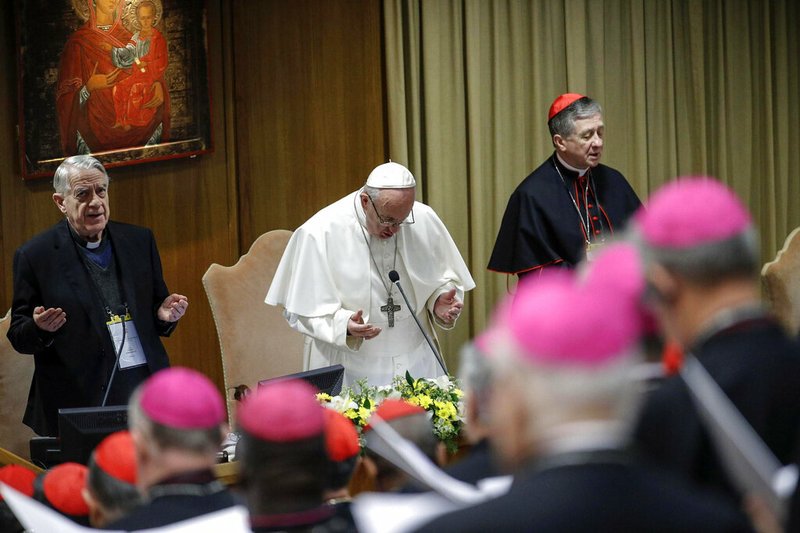
Robert Royal: The bishops now seem to have approval from Rome to act as they see fit in their circumstances. But will they be allowed to really do it? Read more.
21 Points for Reflection and More
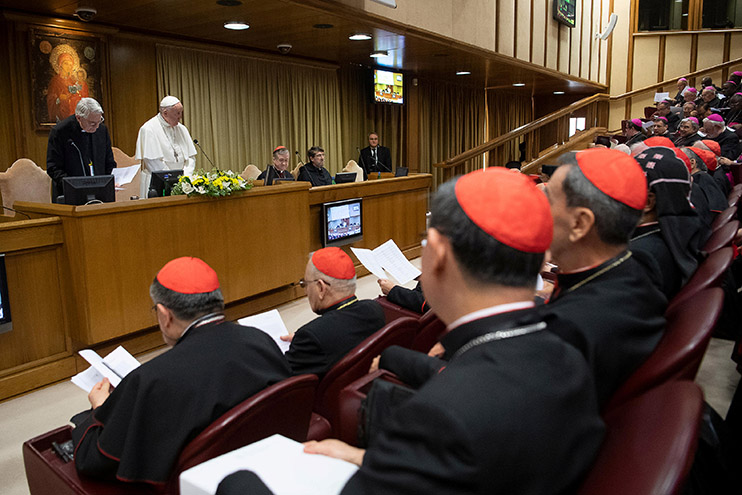
Even before it opened, many people were dismissing the summit on the Protection of Minors as a diversion intended – more accurately – for the Protection of the Higher Ups, in the Vatican and elsewhere in the hierarchy. And it would be difficult to deny that one of the crucial sides of the abuse crisis, namely holding bishops and Church leaders accountable, has been insulated from the actual proceedings – with the weak excuse that, though important, it would dilute the focus on minors, who are the most vulnerable. Read more.
The Coming Global Storm
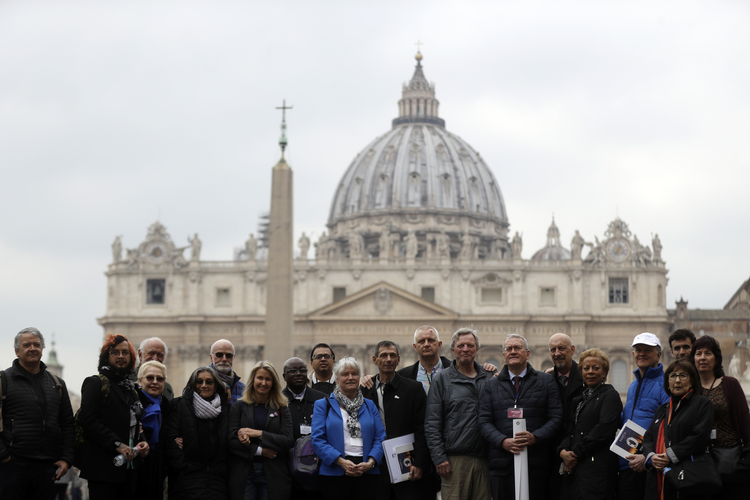
Many people – even many Catholics – who only follow Church matters vaguely, have been puzzled by the Vatican’s conspicuous lack of a sense of urgency about the sexual abuse crisis. Yes, there’s a “summit” on abuse that starts today, but only after months and with a program that looks very carefully stage-managed to keep the most troubling questions at a distance from the Vatican itself. Read more.
The Abuse Summit: It’s Only the Beginning
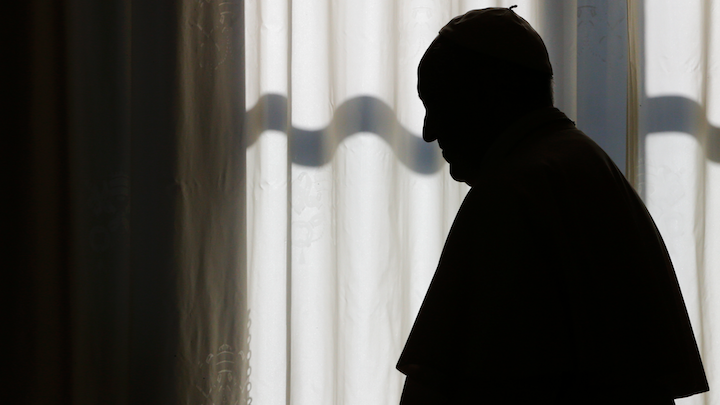
Robert Royal: People are happy that McCarrick has finally been defrocked, but now we need to deal with other abusers and their enablers. Read more.
Synod 2018: An Intermediate Reckoning
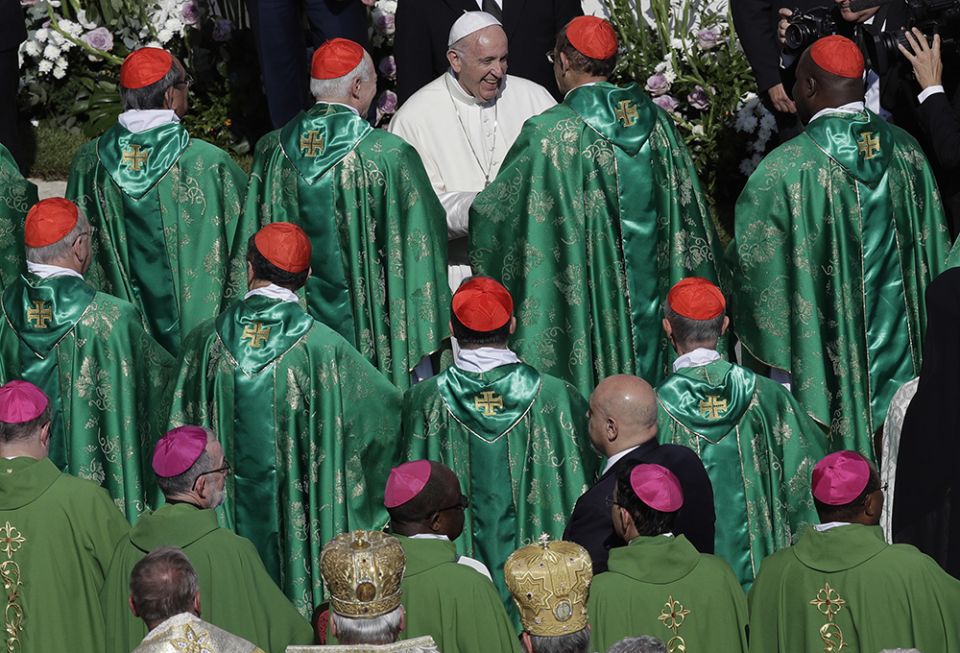
A few days ago, I promised one last report on the Synod and its final document, but only after I had taken time to read the whole text – which still only exists in Italian – and to consider it carefully. There were many quick journalistic reactions, useful in themselves, but they tend to focus on the usual controversial points and stir up emotions that are then forgotten within a couple of news cycles. If we want to be a Church, however, that does more than just try to grab onto a few shreds of truth among the swirling digital and spiritual waters around us, we owe it to ourselves to make a serious effort – even in online forums such as TCT – whenever we can to move more deliberately, dive more deeply. Read more.
Which Future for the Church?
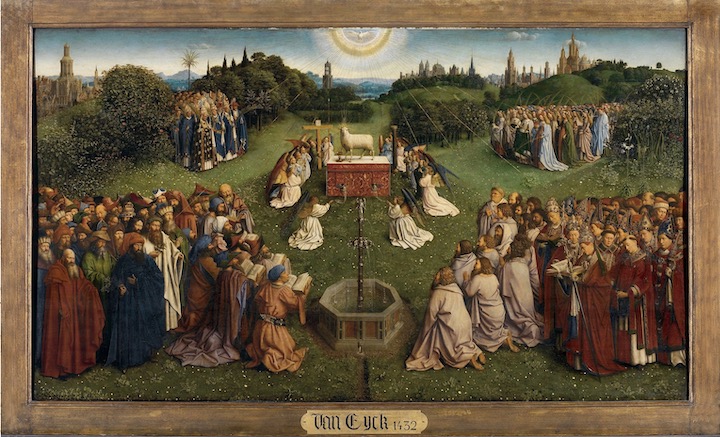
A formerly evanescent creature called “Synodality” has been spotted with increasing frequency in these last days of the Synod on Young People, Faith, and Vocational Discernment (to give the synod its full working title). The bishops vote on the final document later today – and several crucial questions remain in play.
The cynical among observers in Rome say that the emergence of “synodality” as a theme at this late hour is no accident. The explicit LGBT language that was in the Working Document, written prior to the Synod, was effectively blocked early in the process by the firmly expressed opposition of dozens of African bishops and others from around the world. Read more.
The Papal Posse on the Synod’s final week
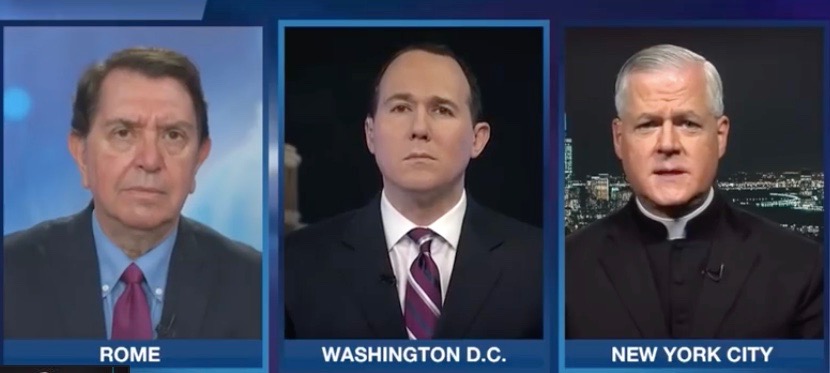
On “The World Over” with host Raymond Arroyo, TCT’s Robert Royal and Fr. Gerald E. Murray discuss the Synod’s final week and much more. Watch here.
Reviewing Texts and on Pilgrimage

When some future historian of the Church looks back at the events of the past several weeks, he may appreciate the weariness many of us felt at the steady drone of first-world obsessions at the Synod, while Christians in real situations of persecution and life-and-death threats are in trouble all over the world.
And that sage future observer may even ask him/herself how people who repeatedly said that they wanted to avoid Eurocentrism and to underscore the plight of people at the margins, still couldn’t quite bring themselves truly to do so.
This reflection stems from what was probably the most salient question at Tuesday’s briefing. A writer from The Tablet, a progressive Catholic publication in London, asked the panel in the Vatican’s Sala Stampa: After all this discussion, if the term LGBT does not appear in the final document, don’t the Synod Father risk being accused of having said they wanted to listen, but in fact did not hear? Read more.
On the Verge
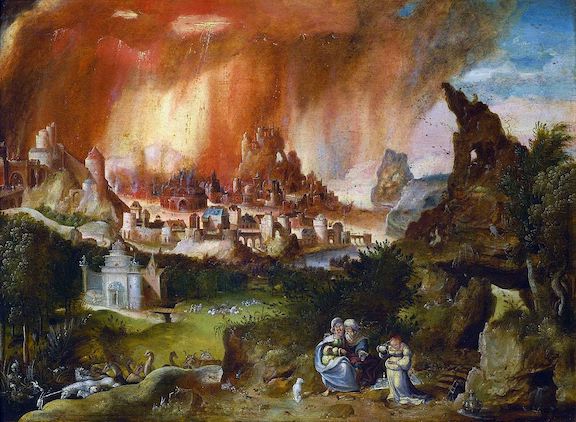
Italian journalists with long experience here say to expect [in the Synod’s final document] a relatively uncontroversial text – on the surface. It will, they say, include ambiguous language about LGBTs designed not to provoke too strong a reaction, but formulations that can be turned in several desired directions in the future.
This seems only too likely. And that’s why the bishops who truly get what’s going on must push strongly for language that allows for no blurring of Catholic teaching, explicit or implicit, anywhere in the final document. Read more.
A Serious Struggle Starts Today
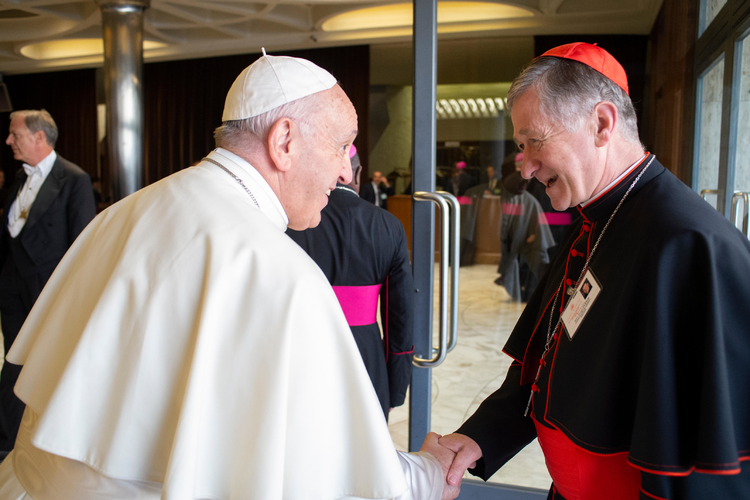
The past three weeks of the Synod were a mere prelude to the main event, which begins as the final week opens today. Tomorrow will be particularly important: the bishops receive the first draft of the final Synod document. So the wrangling will really start, and we will see whether everything that has happened to date is relevant or has just been for show.
In its dalliances with LGBT questions, the Synod has already changed things, just as Amoris laetitia, for all its ambiguities, has gravely changed – and harmed – the understanding of marriage. Read more.
A Nice Day for Social Questions
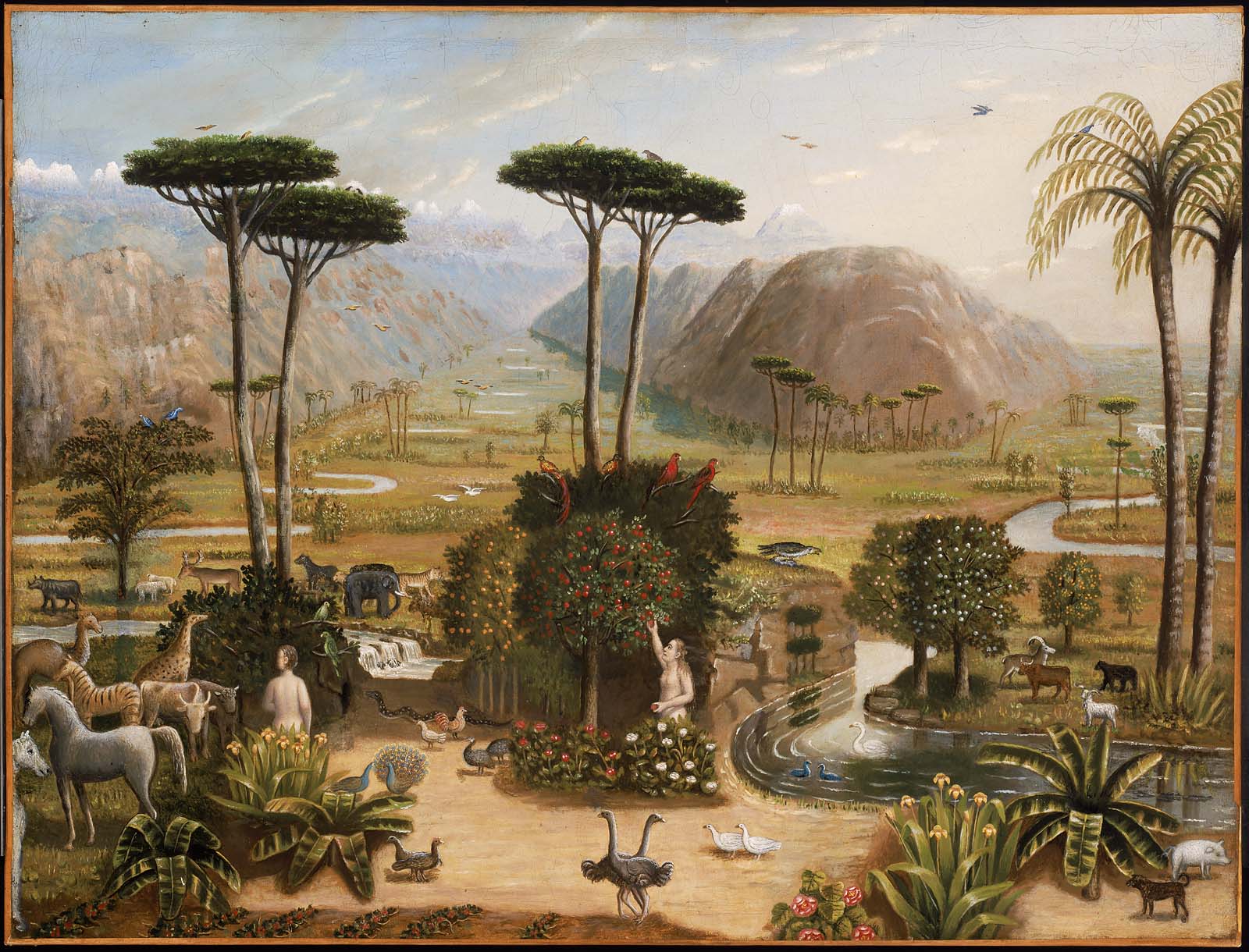
One of the persistent questions at an event like the Synod on Youth – which is by design not open to the press and the public on the principle that a certain degree of privacy allows for more frank discussion and a contemplative atmosphere – is how the flow of information is being managed. Given the basic structure, of course, there cannot be full transparency. Paolo Ruffini, a layman who is the Prefect of the Dicastery for Communications of the Holy See, has been giving fairly comprehensive and credible daily accounts of topics that have been discussed, without revealing who brought them up or how others responded to them.
The daily briefings, on the other hand, involve various participants in the Synod appearing publicly, which also raises questions about why those particular persons were chosen on that particular day. Most of the time, the speakers seem to have been selected either at random, or for a certain variety of interests, or as regional representatives. Thursday seems to have been devoted, on purpose, to social questions with more and less real connection to young people. Read more.
In Search of the Ordinary Good Life
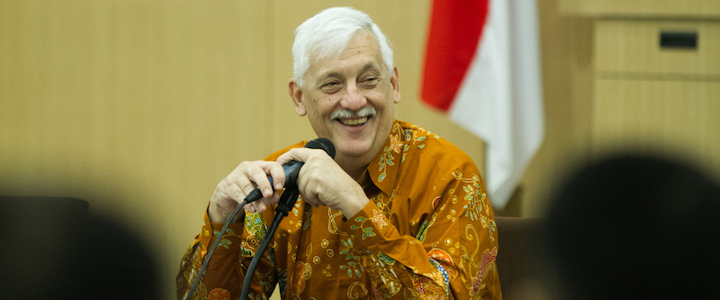
A trusted friend, one of the wisest heads I’ve encountered in our fallen world, just called my attention to “this little item” from Monday’s synod briefing by Fr. Arturo Sosa S.J., a Venezuelan who was named the Superior General of the Jesuits by Pope Francis two Octobers ago: “The Church should show the multicultural face of the God who revealed himself in Nazareth, and promote a universal citizenship, that recognizes the richness that is brought by cultural diversity, therefore build a multicultural world.”
I was in the room when he made this remark. And as the Protestants say, “I feel convicted” now by my friend’s message. I simply typed a note into my running log for the day without giving it much importance. My bad. But when you are swimming around in many words that don’t seem to be attached to anything, you tend to get numb to the next little bit. Read more.
It’s All or Nothing
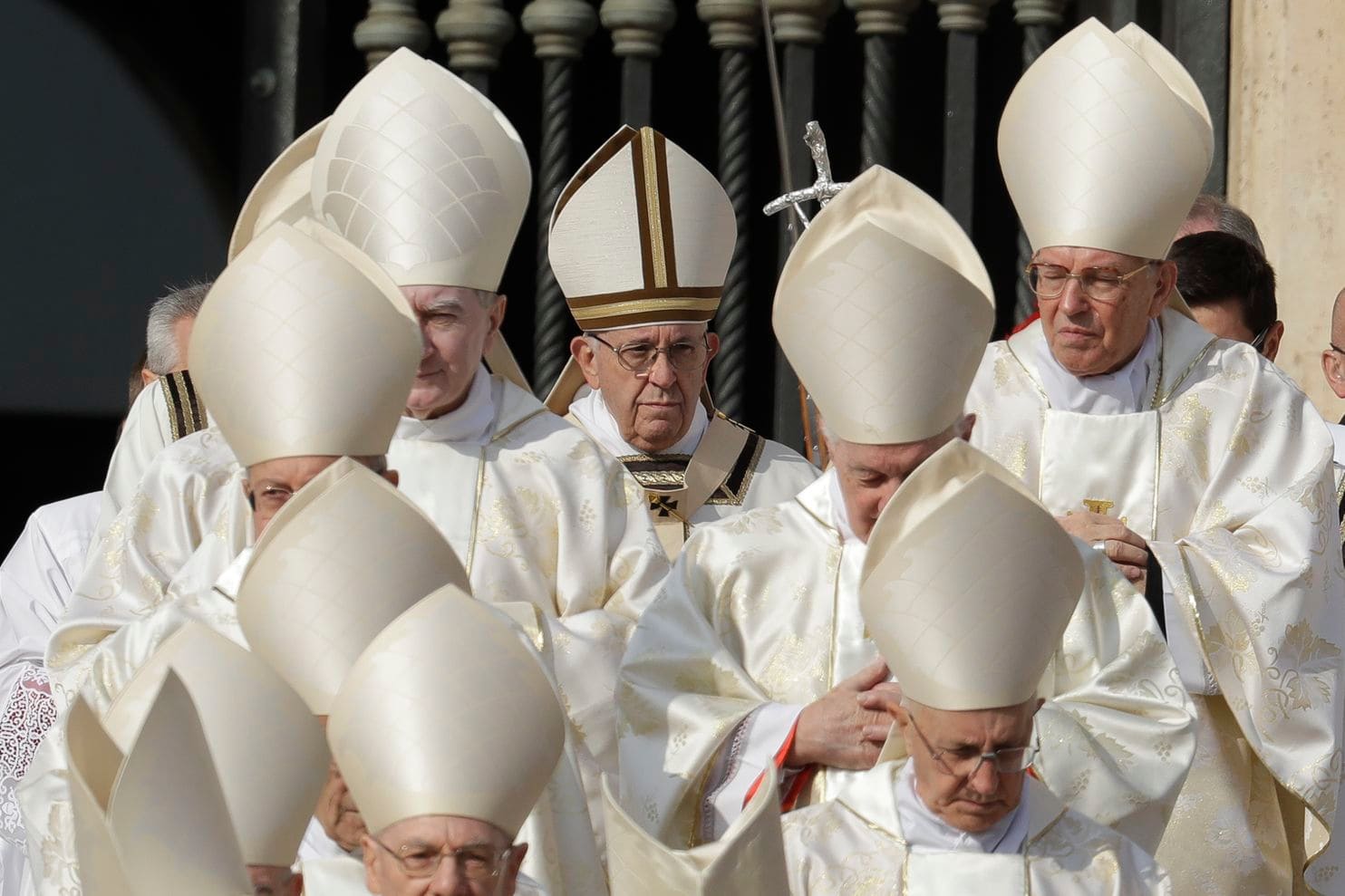
Pope Francis made a bold statement at the canonization Mass on Sunday:
“Jesus is radical. He gives all and he asks all: he gives a love that is total and asks for an undivided heart. Even today he gives himself to us as the living bread; can we give him crumbs in exchange?” . . .
The crowd gathered in St. Peter’s Square to listen to him was mostly older adults, but we might hope that before the Synod comes to an end, he uses his considerable charisma to convey that same message to young people as well. Because over and above the various debates and the mechanics of the event, that will the measure of whether the Synod is a success or failure. Read more.
Whither Now? and What is the Church?
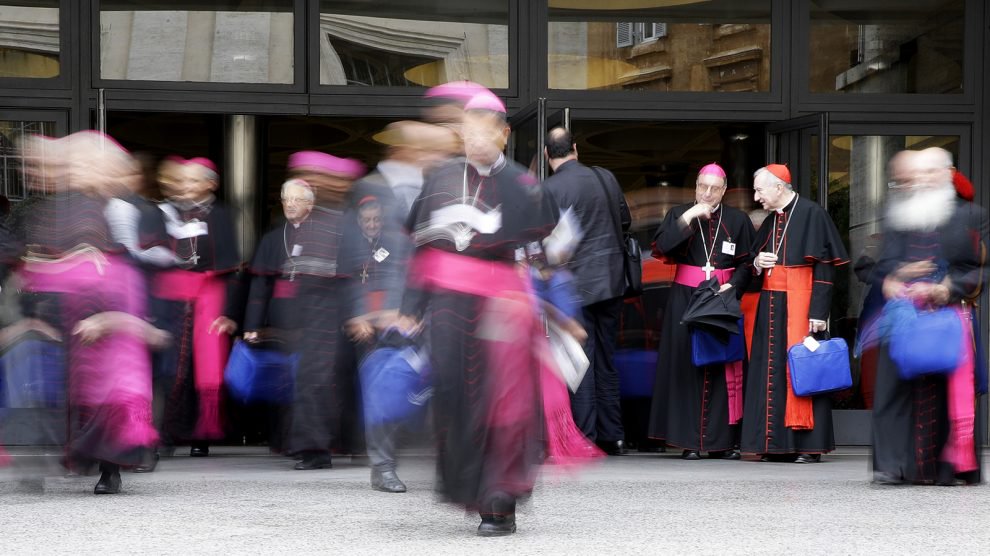
A typical milky blue sky, fresh then hot, presided over yesterday’s canonizations. And St. Peter’s Square was surprisingly packed mostly with Spanish and Italian speakers, but also many Poles and Americans, and small groups of others. It was a welcome pause from Synod business, and a reminder of the still global reach and influence of the Church, whatever troubles we may face. Read more.
What “Future” without Children?
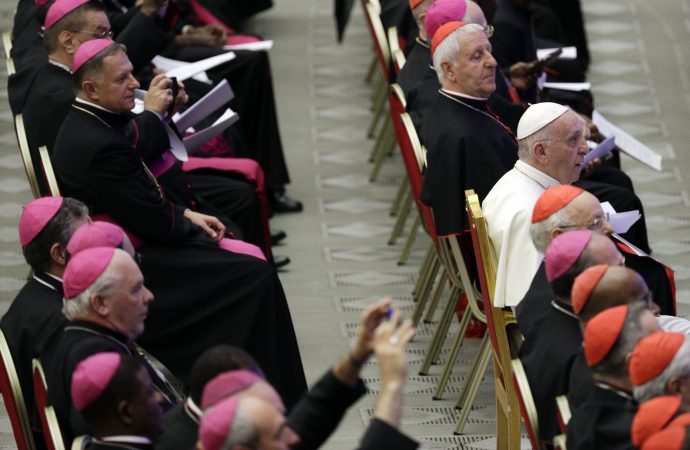
The “future” has been a hot topic at the Synod on Youth, the Faith, and Vocational Discernment. Virtually everyone, bishops and lay people alike, works hard to find reasons to believe that, despite the dismaying statistics about young people turning their backs on Christianity and the mostly tepid stance of most of those who have not left, we should not give into pessimism or, worse, the sin of despair. There’s “hope” – they say – for the “future.” Read more.
First Reports – Part II
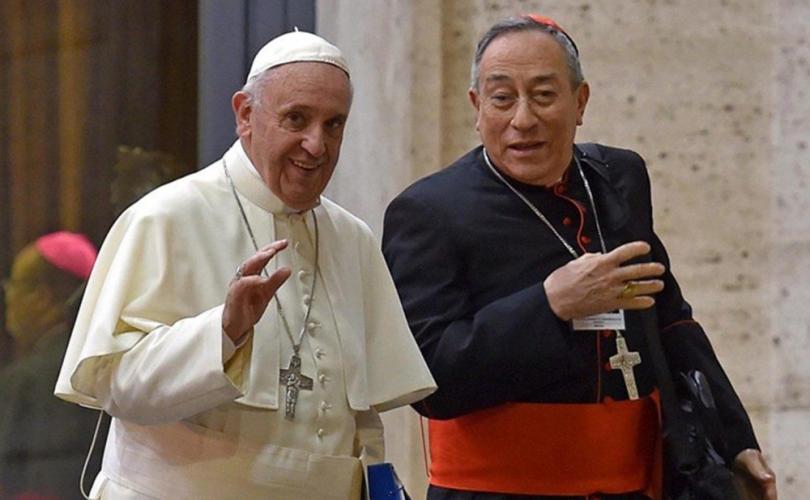
A word of caution about early pronouncements from the Synod: many people, including some journalists who should know better, pick out something that has been said in one of those groups as evidence that “the Synod” has attacked or supported some outrageous view or other. This is my third synod and, in every one of them, things have been said – foolish, incoherent, or outright obtuse – that it’s hard to believe came from a delegate to a meeting at the Vatican. Read more.
First Reports
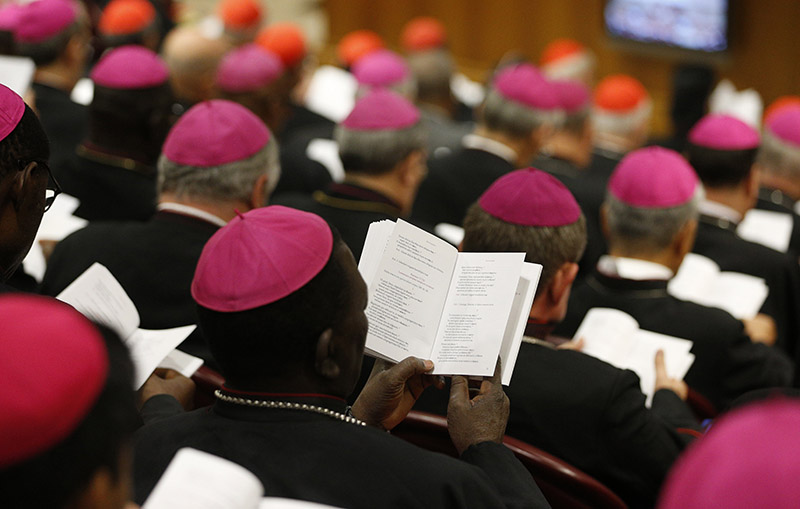
Yesterday, the Synod released the brief reports of the fourteen circoli minori, the small language groups that gather outside of the full meetings of almost 300 participants to work through various points. These provide the first substantial glimpse into proceedings that have largely been out of public sight until now. Read more.
A More Excellent Way
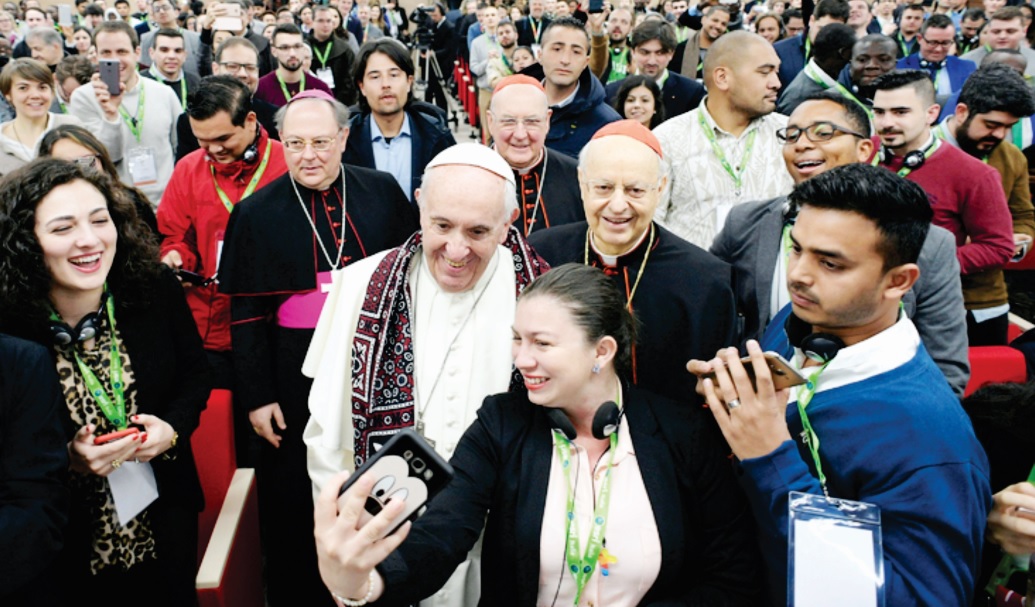
The Synod of Young People finishes its first full week today and – it has to be said, at least based on what’s emerged from the closed sessions – the whole exercise seems to be in a holding pattern. Preaching the old theological virtues of Faith, Hope, and Charity to adolescents may not be the best catechetical approach to a profoundly under-catechized generation that needs considerable preparation before it can even grasp the significance of such Christian basics. Read more.
Two New Statements and the Church’s Trust Deficit
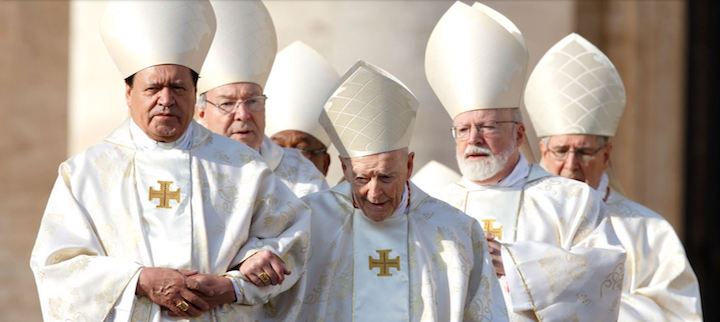
Two statements came out from the Vatican over the weekend, basically during the pause in the Synod for the Sunday observances. Both dealt with the McCarrick case, and were partly a reaction to the constant presence of that case and – indirectly – other abuse cases in synodal conversations about the Church and young people. That’s become a necessity because, as Sydney Archbishop Anthony Fisher put it last week, many people were harmed and lost trust when they were young; and “The Church has to be the safest possible place for a person.” Read more.
Speaking as an American. . .
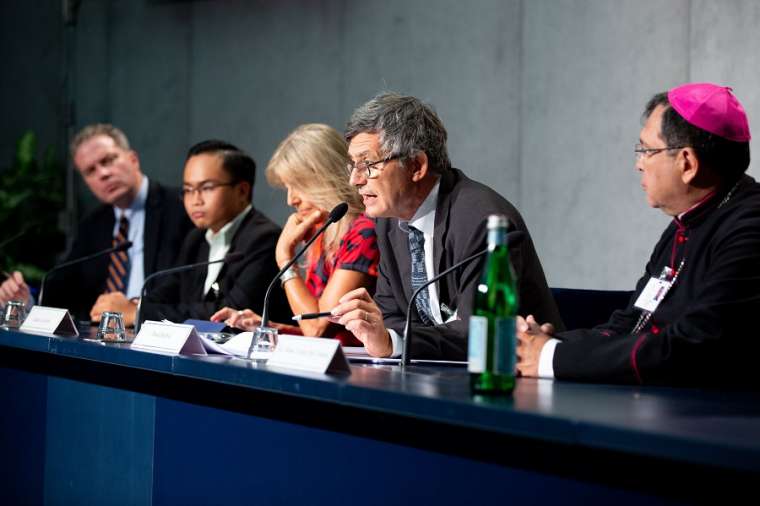
Father Thomas J. Reese is a Jesuit – former editor of the Jesuit magazine America. He’s, generally speaking, a strong supporter of Pope Francis, both in his efforts to change the Church and in his political initiatives on subjects such as the environment, immigrants, and global poverty. Towards the end of yesterday’s briefing in the Vatican press office (the first for the Synod on Young People), he asked what may become the central question that will loom over the whole four weeks of the synod. Read more.





